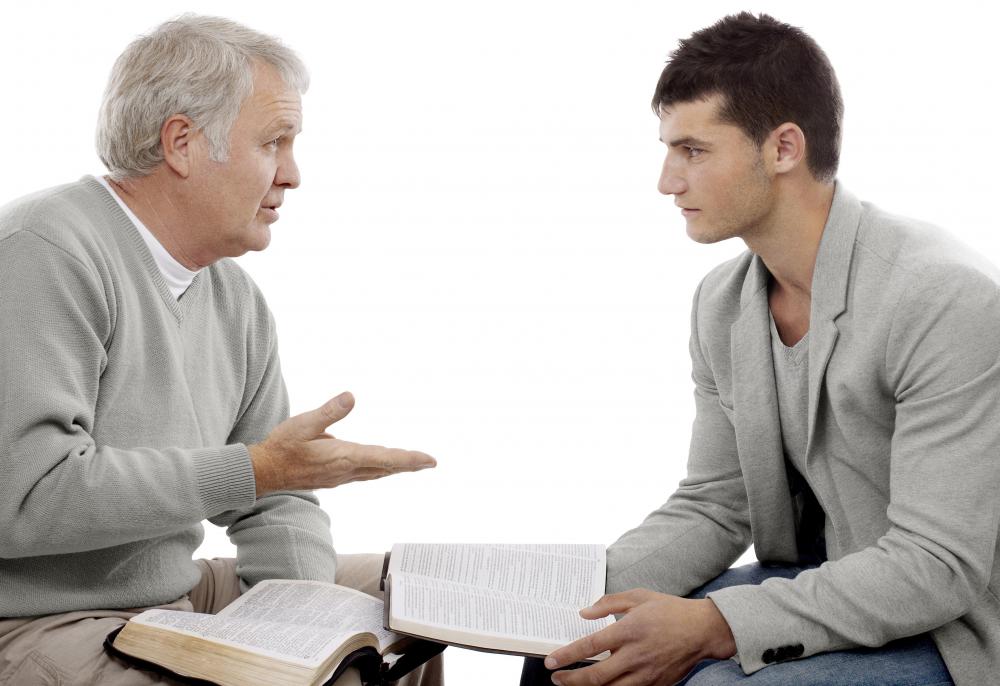At WiseGEEK, we're committed to delivering accurate, trustworthy information. Our expert-authored content is rigorously fact-checked and sourced from credible authorities. Discover how we uphold the highest standards in providing you with reliable knowledge.
What Is Involved in Bereavement Training?
Bereavement training provides counselors, doctors, social workers, and other professionals who may interact with bereaved people with tools they can use to offer assistance while protecting their own emotional health. There are a number of approaches to bereavement and counseling, and the training may cover several approaches or focus on a specific technique. The length of training varies; some programs offer a quick overview over the course of a weekend, while others may be more extended, and some require attendance at a retreat or similar location to encourage participants to focus.
One aspect of bereavement training is a psychological explanation of grief and an exploration of the different ways grief may manifest in clients and patients. This can cover responses to different kinds of losses, such as children versus parents, or close friends. The training can also discuss unusual or abnormal responses to loss to allow participants to identify bereaved persons who may need more intervention. In complicated grief, for example, grieving persists and can become intrusive.

Cultural norms and traditions can also be an important part of bereavement training, and some courses focus on this. This can include discussions of the ways different cultures handle grief and mourning issues. In a cultural sensitivity program to provide care providers with information about minorities they may interact with as part of their work, a bereavement training session may place grieving in a cultural context. Since many cultures have different norms and expectations about grief, it can be important to understand that not everyone will respond to loss in the same way.

The bereavement training will also provide participants with tools they can use in clinical interventions. These can include everything from workbooks for patients to tips on handling group therapy. Each participant will need to custom counseling and support services to the needs of the client, but can find it helpful to attend a course to get general information on established standards and practices for working with patients after the experience of loss.

Training may also discuss the risks to care providers providing bereavement counseling, including transference and burnout. Instructors will provide advice and assistance on limiting these risks to protect health and safety in the long term while still serving patients effectively.
Attendees at a bereavement training may also have a chance for clinical practice. Members of the public can receive counseling services for free by agreeing to work with care providers in training. Participants may offer counseling services under supervision at first, until their instructors feel they are ready to work alone. Direct patient work can help care providers put their skills in use, and will reinforce the lessons learned in the training.
Bereavement training may also focus on pastoral counseling, services offered to members of a religious organization through a religious officiant like a priest. This type of training is rooted in religious attitudes to death and mourning.
AS FEATURED ON:
AS FEATURED ON:


















Discuss this Article
Post your comments